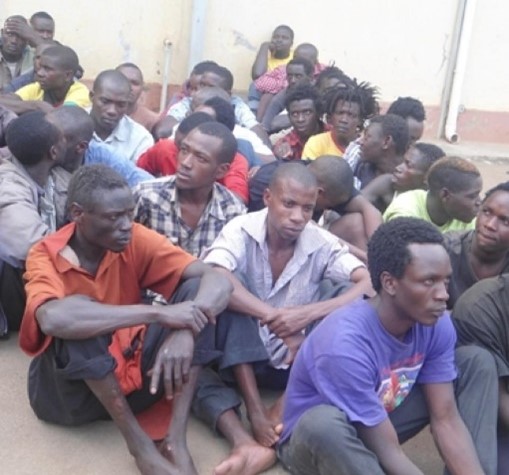Liberia’s drug crisis has escalated into a national emergency, impacting not only public health and social cohesion but also posing a significant threat to national security. The pervasiveness of drug abuse, visible in urban slums, youth ghettos, and even rural communities, demands a comprehensive response that moves beyond punitive measures and embraces a multi-sectoral approach rooted in human rights and rehabilitation. This crisis, as acknowledged by President Boakai, requires a paradigm shift towards addressing the underlying social, economic, and psychological factors that contribute to drug dependency.
The root causes of Liberia’s drug epidemic are deeply intertwined with the country’s socio-economic vulnerabilities. Poverty, unemployment, the lingering trauma of civil conflict, the breakdown of family structures, and the lack of adequate mental health services create a fertile ground for substance abuse. Criminalizing addiction without addressing these underlying issues is counterproductive, leading to high recidivism and further marginalization. Recognizing drug dependency as a medical condition, as affirmed by the World Health Organization and Liberia’s own Mental Health Act, is crucial for developing effective and humane interventions. The lack of resources and implementation of the Mental Health Act, however, presents a significant obstacle.
Reforming law enforcement is a critical component of addressing the drug crisis. While the Liberia Drug Enforcement Agency (LDEA) plays a role in curbing drug trafficking, its efforts must move beyond sporadic seizures and address issues of brutality and bribery. Adopting an intelligence-led approach, as recommended by the UNODC, would enable law enforcement to target high-level suppliers, disrupt transnational networks, and utilize data-driven strategies to dismantle supply chains. Legal reforms are also necessary to strengthen the chain of evidence and ensure judicial oversight of undercover operations, protecting against abuses of power and wrongful convictions.
Rehabilitation and reintegration are fundamental to breaking the cycle of addiction and reintegrating individuals into society. The severe shortage of accessible rehabilitation centers in Liberia, primarily due to the lack of public facilities, violates the constitutional right to health and well-being. The government has a positive obligation, as enshrined in the Liberian Constitution and the African Charter on Human and Peoples’ Rights, to provide adequate treatment options for individuals struggling with addiction. Furthermore, comprehensive reintegration programs, in collaboration with relevant ministries, are essential for providing vocational training, job placement, and psychological support to facilitate successful reentry into society.
Community engagement is paramount in preventing drug abuse and fostering a supportive environment for recovery. Civil society organizations, religious institutions, traditional leaders, and families play a vital role in early intervention and providing social support. Integrating drug awareness education into the national curriculum from the primary level can empower young people to make informed choices. Exploring community-based rehabilitation models, such as Kenya’s “Nyumba Kumi” initiative, can further strengthen local responses to drug addiction.
Addressing the economic drivers of drug abuse is crucial for reducing demand. Liberia’s high youth unemployment rate creates a vulnerable population susceptible to drug use as a means of coping or generating income. Targeted economic empowerment schemes, including micro-finance initiatives, agricultural cooperatives, and urban public works projects, can provide alternative pathways to economic stability and reduce the allure of drug-related activities. These schemes must be intentionally designed to reach and engage young people, offering them viable alternatives to participation in the drug economy.
Legal reforms that prioritize a therapeutic approach to justice are essential for addressing the drug crisis effectively. While the Drugs and Related Act criminalizes trafficking and possession, it lacks a robust diversion system for minor offenders. Implementing alternative sentencing models, such as drug courts with judicial discretion to mandate treatment, probation with mandatory counseling, and conditional release upon completion of rehabilitation, can help break the cycle of addiction and reduce the burden on the criminal justice system. These reforms align with international best practices and Liberia’s obligations under the International Covenant on Civil and Political Rights.
Regional and international collaboration is crucial for combating drug trafficking and addressing the broader challenges of drug abuse. Strengthening border surveillance through partnerships with the Mano River Union (MRU) and ECOWAS, sharing intelligence across borders, conducting joint operations, and harmonizing legal frameworks are vital steps in tackling West Africa’s role as a drug transit hub. Capacity building through cooperation with international organizations, such as the UNODC, Interpol, and regional anti-narcotics bodies, is essential for enhancing Liberia’s ability to effectively address the complex dimensions of the drug crisis.
In conclusion, Liberia’s drug crisis demands a comprehensive and multifaceted response that addresses the root causes of addiction, strengthens law enforcement while upholding human rights, provides accessible treatment and reintegration services, empowers communities to participate in prevention efforts, creates economic opportunities for vulnerable populations, and implements legal reforms that prioritize a therapeutic approach to justice. Regional and international cooperation further strengthens national efforts. This requires a paradigm shift away from solely punitive measures towards a compassionate, evidence-based strategy that recognizes drug addiction as a public health issue and prioritizes rehabilitation and reintegration. The future of Liberia depends on a concerted and sustained effort to address this complex challenge.


